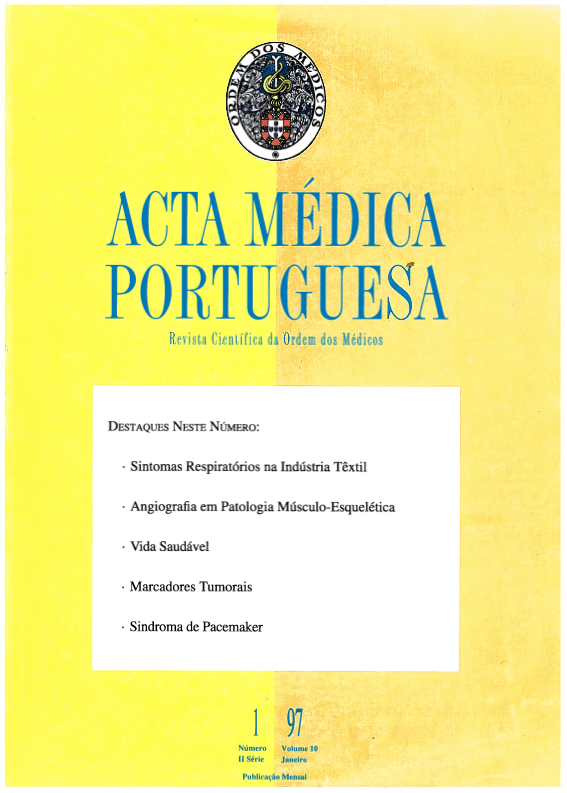Inquéritos postais. Uma estratégia útil para o seguimento de doentes com acidente vascular cerebral?
DOI:
https://doi.org/10.20344/amp.2380Resumo
Although not frequently used in Portugal, postal questionnaires allow the collection of information on patient's follow-up. In this study we assessed the rate of response and the usefulness of a postal questionnaire in a sample of patients with acute stroke. A prospective study was designed and analysed as a case-control: postal questionnaires were sent to 138 patients together with a randomly assigned stamped or post-free return envelope. The percentage of responders was 60% (n=78) and we found no significant differences in response rates according to the mailing strategy (58% for stamped and 62% for post-free return envelopes, p = 0.786). The time gap between hospital discharge and sending of the questionnaire had no significant influence in the response rate. Elder patients and women tend to respond more frequently, but these characteristics also do not change the response rate. Analysing socio-demographic variables reported at the acute phase, we only found differences in response rate for the smoking status: smoking was associated with a lower participation. In conclusion, the present study showed that a postal questionnaire is a useful method for the follow-up of stroke cases and that we must pay special attention to smokers for whom alternative strategies of contact or information should be used to increase compliance with postal questionnaire follow-up.Downloads
Downloads
Como Citar
Edição
Secção
Licença
Todos os artigos publicados na AMP são de acesso aberto e cumprem os requisitos das agências de financiamento ou instituições académicas. Relativamente à utilização por terceiros a AMP rege-se pelos termos da licença Creative Commons ‘Atribuição – Uso Não-Comercial – (CC-BY-NC)’.
É da responsabilidade do autor obter permissão para reproduzir figuras, tabelas, etc., de outras publicações. Após a aceitação de um artigo, os autores serão convidados a preencher uma “Declaração de Responsabilidade Autoral e Partilha de Direitos de Autor “(http://www.actamedicaportuguesa.com/info/AMP-NormasPublicacao.pdf) e a “Declaração de Potenciais Conflitos de Interesse” (http://www.icmje.org/conflicts-of-interest) do ICMJE. Será enviado um e-mail ao autor correspondente, confirmando a receção do manuscrito.
Após a publicação, os autores ficam autorizados a disponibilizar os seus artigos em repositórios das suas instituições de origem, desde que mencionem sempre onde foram publicados e de acordo com a licença Creative Commons









